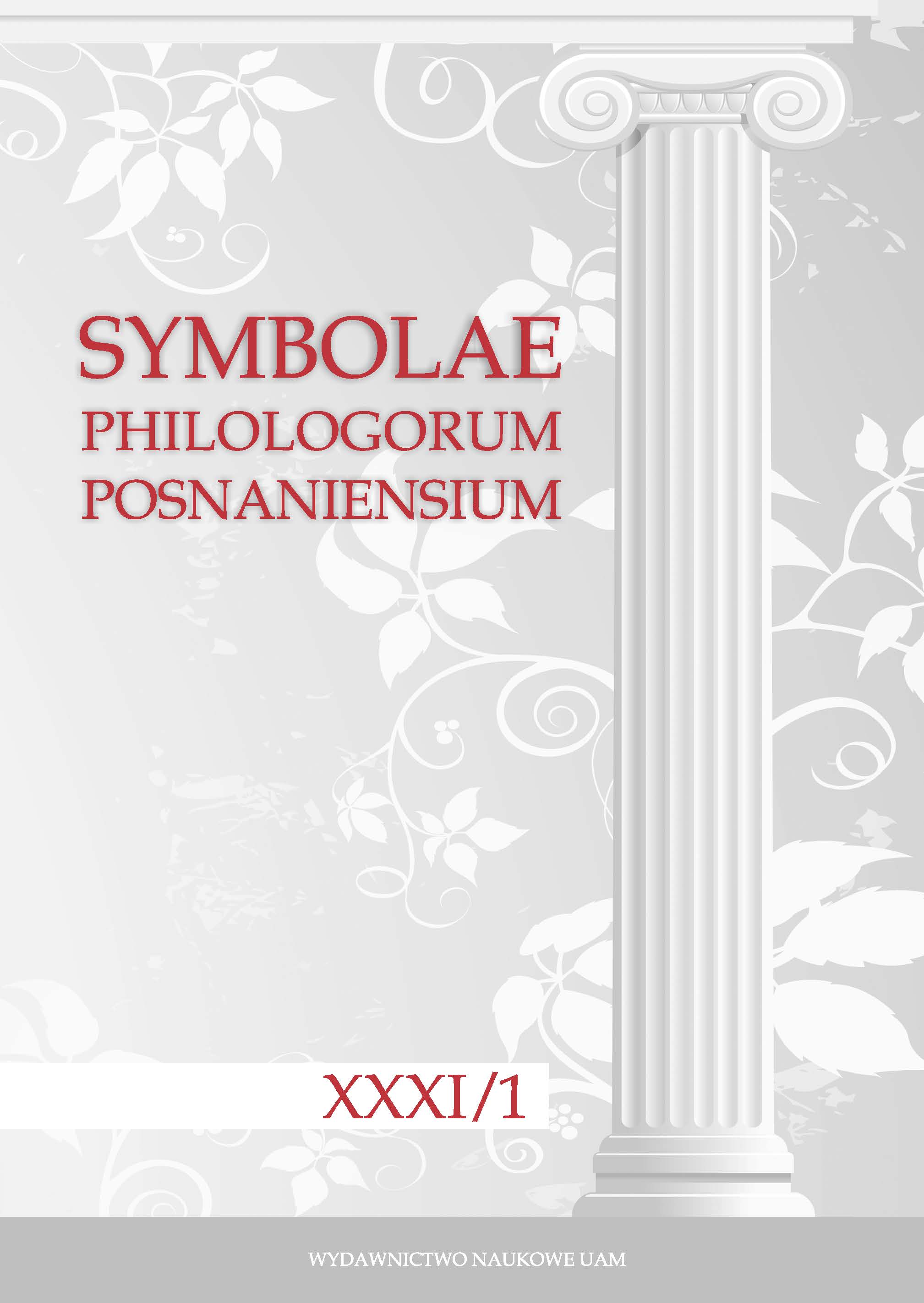Homo sum – amicus sum, sive de Terentio Christiano Hrotsvithae Gandeshemensis
Homo sum – amicus sum, or about the Christian Terence by Hrotsvit from Gandesheim
Author(s): Kurt SmolakSubject(s): Language and Literature Studies
Published by: Uniwersytet Adama Mickiewicza
Keywords: Roman Comedy; Terence; humanity; charity; friendship; Christianity; hagiographic drama; Roswita (Hrotsvit) of Gandersheim
Summary/Abstract: The most famous line from Terence, homo sum etc. (Heautontimoroumenos 77), has been interpreted in different ways under different circumstances by authors ranging from Cicero and Seneca in antiquity and Erasmus at the beginning of the modern age to figures of the 19th and 20th centuries, such as Friedrich Nietzsche, George Bataille, and Thomas Mann. Augustine of Hippo was the first to refer to Terence within a broader Christian context, and in the 12th century John of Salisbury equated the presumed philanthropic attitude of the Roman comedian and imitator of Menander with charity, the ultimate Christian virtue. Whereas most of the testimonia to the reception of Heautontimoroumenos 77 have already been identified and in part analyzed, a refined indirect ῾quotation᾿ of the line in question has been neglected: In a sort of réécriture of the initial scene of Terence’s drama, Roswita (Hrotsvit) of Gandersheim (10th century), in her hagiographic comedy ῾Abraham᾿, interpreted the even then proverbial sentence by introducing for the attitude of ῾humanity towards one’s neighbour᾿ both the Aristotelian definition of friendship (῾one soul in two bodies᾿) and a reference to the ideal of a Christian society with ‘one heart and one soul᾿ (Acts 4, 32). Thus the Terentian humanum is both paraphrased by and identified with both an other classical and a Christian concept of mutual human affection.
Journal: Symbolae Philologorum Posnaniensium Graecae et Latinae
- Issue Year: XXXI/2021
- Issue No: 1
- Page Range: 249-263
- Page Count: 15
- Language: Latin

